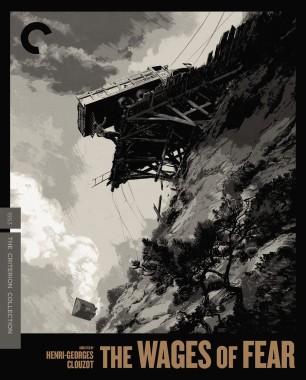
Alan Arkin’s Top10
Alan Arkin is an actor, director, writer, and musician. He has been watching movies from around the globe since he was seven years old. Here are ten of his favorites.
-
1
Jean Renoir
The Rules of the Game
I’ve always been drawn to ensemble work. Renoir’s films constantly give a sense of joyous communal activity. All the characters in this film, as in most of his films, are specific and memorable—and Renoir’s vision of life is never pat: he can go from farce to tragedy in a moment, seamlessly, and all the while managing to be above the emotional content of his films. Understanding of it, compassionate towards his characters, but fearlessly above it. In addition his staging, both of the actors and in the camera work, is breathtakingly imaginative.
-
2
Federico Fellini
La dolce vita
When La dolce vita first came out, I felt that it was the most visually stunning and provocative film I had ever seen. It remains a jaw-dropping high-wire act, constantly stunning us with its energy, its imagination, its movement, its surprises—in both story and imagery—its wit, the brilliance of its camerawork, costumes, and music, with an endless parade of memorable characters. It’s so rich and entertaining and exciting in its execution that we almost completely forget how terribly sad is the plight of its lead character. And if anyone cares to look, it is the Gospel according to Matthew turned upside down.
-
3
Akira Kurosawa
Seven Samurai
Whenever I watch Seven Samurai I am immediately transported to sixteenth-century Japan. No analysis is possible, no appreciation of performance, direction, camera work, music. Somehow, I'm left feeling that miraculously, Kurosawa found a way to dig up a 400-year-old Japanese documentary. It’s a film completely devoid of artifice or ego. I have seen many of the actors in other films, but I always feel as if they’ve made some mistake, that their true identity lies in Seven Samurai. Like few films I have ever seen, this one somehow makes me feel ennobled. It’s visual Beethoven.
-
4
Matteo Garrone
Gomorrah
Another film that feels like a documentary. Garrone has managed to take all the sentimental glamour out of the Mafia—which sneaks into a lot of films on the subject—and shows it to be the frightening, feeling-less business that it must be. Paradoxically, the lack of emotion is what gives the film its power, and what ultimately makes it so moving and memorable.
-
5
Charles Laughton
The Night of the Hunter
Charles Laughton’s brilliant introduction (and also swan song) as a film director, which is a terrible loss for all of us. He fearlessly plunges us into impressionism and surrealism, where few in Hollywood have ever ventured. One can only imagine where he would have gone if he’d continued to direct. With a never-better Robert Mitchum, and a drowned Shelley Winters, yet again.
-
6
Henri-Georges Clouzot
The Wages of Fear
One of the most harrowing films ever made. Clouzot has impossibly constructed a thriller about a life-threatening journey in a truck that never goes above six miles an hour! Nail-biting and riveting, with wonderful and insightful character development, it’s a film that’s also about greed and desperation, with terrific performances from Yves Montand and Charles Vanel.
-
7
Ronald Neame
The Horse’s Mouth
My favorite Alec Guinness performance, and the best portrait of an artist that I’ve ever seen. Filled with humor, madness, and obsession, with a wonderful script by Guinness.
-
8
Jean Renoir
Grand Illusion
Renoir’s antiwar masterpiece . . . on everyone’s ten-best list. It’s a war movie filled with humanity, with paradox, with love, and with humor—and has great performances from Jean Gabin, Erich von Stroheim, Marcel Dalio, and many wonderful actors from Renoir’s stock company. Moving and uplifting.
-
9
Charles Chaplin
The Great Dictator
If I had to pick my favorite genre, which I’d prefer not to do, but if I had to, it would be serious comedy. Comedy that makes you laugh and then think. The Great Dictator is the quintessential embodiment of that form. Chaplin takes us from farce to deeply moving material in a breathtaking tour de force, making fun of Hitler without ever diminishing his power and danger. I first saw this film when I was about seven, and it was the reason I became an actor.
-
10
Preston Sturges
Sullivan’s Travels
Sturges’s improbable, implausible, yet completely believable fairy tale about Hollywood, about filmmaking, in all of its nonsense and its life-changing glory. Sturges digs deep into farce, but on the way finds something deeply thoughtful and moving. It’s the film I turn to whenever I think my career is devoid of meaning. Joel McCrea transcends himself, and Veronica Lake was never better.














